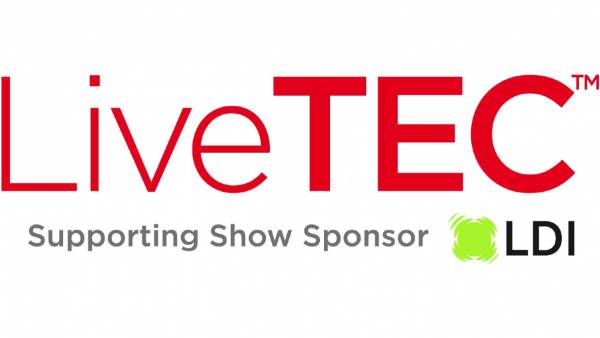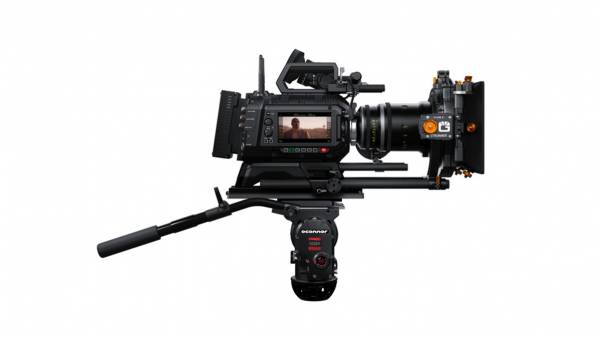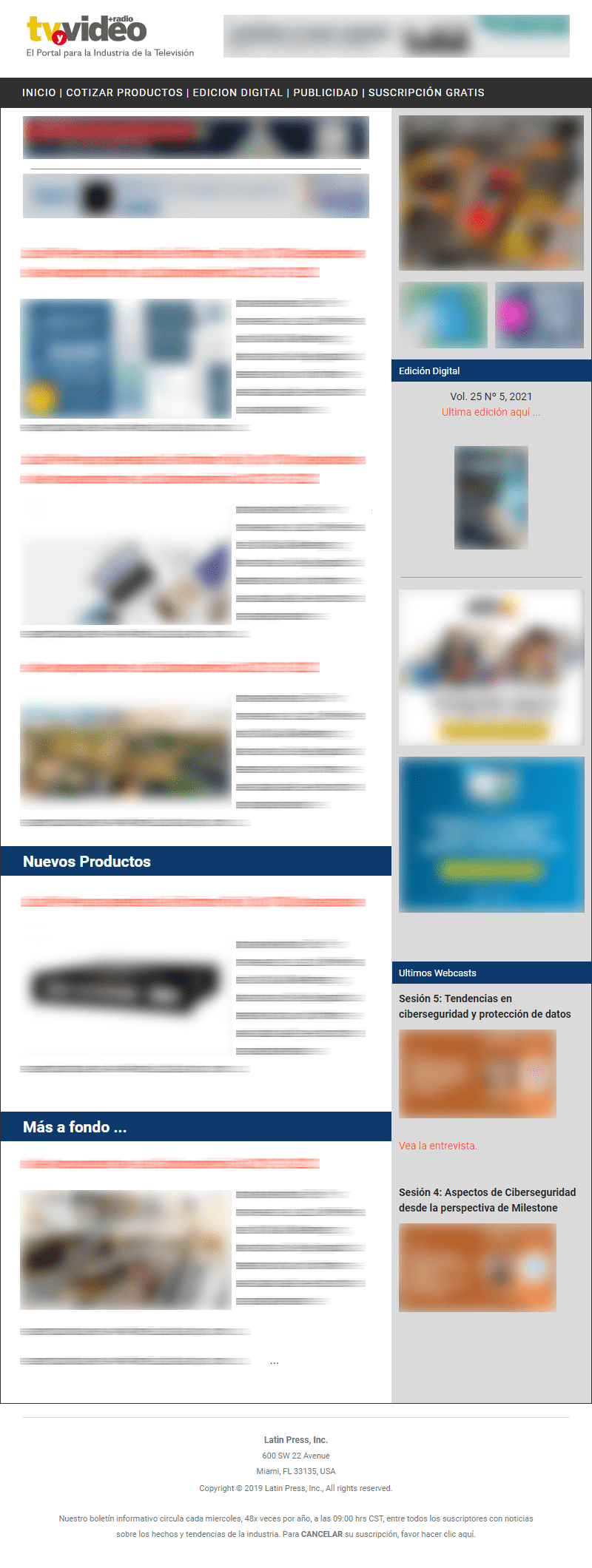Magnetic tape is a fragile medium, which requires more care than we think is necessary. It was not designed as a long-lasting storage medium, but it is durable and can undergo the rigors of heavy use for long periods, as long as it receives proper treatment.
- Case 1 - Lost news : The star reporter of the channel has achieved a great news exclusively and, when he goes to edit, he discovers that the most important part of his material has been recorded on a deteriorated cassette.
- Case 2 - Lost File : An important figure of national life dies. When you try to use footage to illustrate a special program about your life, you find that cassettes cannot be used because the tape is "glued".
- Case 3 - Lost Money : A small production company has to redesign its budgets because its technical staff intends to start each project with new videotapes.
The above cases are related to a basic reason: videotapes are a relatively fragile storage medium; manufacturers have concentrated on improving the construction and formulation to ensure they are easy to use and copy, but their stability depends largely on the treatment provided to them.
Many producers are accustomed to subjecting their tapes to intense reuse and recycling processes without making a technical assessment of the reliability of the material that is used repeatedly. The result? Unpleasant surprises like those described above.
The main reason for the accelerated deterioration of videotape files is improper storage. Unfortunately, the long rows of videocassettes in the process of irreparable damage give no visual signs of losing their original quality.
Very often tapes are stored in warehouses without special conditioning, or in damp basements, because it is assumed that environmental conditions will not affect them. However, it is essential to review the conditioning of the spaces dedicated to the archiving of material.
It is clear that tapes should not be stored in humid environments, nor be subjected to sudden changes in temperature. Cyclical environmental modifications are especially harmful, as regular patterns of changes in temperature and humidity levels can favor deterioration by organic agents, such as mold and insects.
How are your tapes?
The tape file should be located in a cool, dry place, with a relatively stable temperature. In fact, the first action to be taken when archived material presents problems is to immediately review the environmental conditions, to try to interrupt the deterioration process. This is the only treatment that can be followed without resorting to specialized tape recovery services, the cost of which can be prohibitive.
To evaluate the conditions of the site where you archive your material it is possible to apply some simple tests. For example, if someone with normal physical activity in the storage area suffers from excessive sweating, coughing, or other breathing problems, their tapes may feel as uncomfortable as that file user.
An olfactory evaluation can be used to detect deterioration processes caused by excess moisture, the appearance of some type of parasites or simple deterioration of the binding substances. Any smell different from that of the plastic of a new tape should be interpreted as an alarm signal.
Visual inspection of the visible parts of the tape is very important. Dust particles detectable to the naked eye, or evidence of irregular winding, are usually symptoms of serious problems.
It's also a good idea to review tape reuse procedures. Many companies usually send tapes that have been discarded by other departments to the archive. This is running the risk of your most important information being recorded on the company's most deteriorated cassette, which is sovereign nonsense.
The irresponsibility of certain producers with their material is staggering. For example, some dispense with the original tape boxes to make better use of storage space. Faced with such an absurd decision, there is no comment to spare...
Better to prevent...
Disaster prevention is another aspect to consider. How would your file behave in the event of a fire? Do you have the necessary security measures in place to control an emergency and minimize possible damage to your valuable tapes?
The Lesson of Sound Tapes
What about the audio tapes that have been stored in their boxes for thirty or forty years? Or, more importantly, what can happen to your valuable videocassettes after twelve or fifteen years of rest?
Radio was the first industry to use magnetic tape in bulk; for this reason, the experience of commercial stations and their sound archives can be interesting. In fact, the disastrous performance of archival tapes has become part of the life of many broadcast operations.
It is perfectly possible to find 1/4" tapes that have been stored for more than forty years, keeping both their very important contents and a long series of headaches for those who intend to use them.
In some studies, deteriorated tapes are subjected to artisanal processes of cleaning and lubrication of their surface; even high temperature treatments in conventional electric ovens, with which they try to restore stability to the tapes to make a copy on a new medium and recover their contents.
Of course, it can be difficult to put a video cassette in the oven, but it is worth considering what broadcasters learned: the difference between the different classes and brands of tapes appears over the years. And the formulation of older videotapes was very similar to that of some sound tapes, so they can be affected by similar problems.
This has already been painfully learned by the users of those old 3/4" tapes that have passively deteriorated on their shelves, slowly losing the stories they have recorded.
Tape evaluation systems: a very reasonable option.
Why stop taking advantage of material that can be used again? Sometimes throwing away used tapes is like throwing money out the window. Have you thought about establishing a maintenance program for your videocassettes?
The videotape will be with us for many more years. Despite the proliferation of storage systems based on magnetic discs, videocassettes remain the most attractive option for storing large amounts of moving images, and having the possibility of recording in digital formats with a minimum of loss of quality it is clear that in the near future and for reasons Inexpensive video servers will have to coexist with conventional video recorders.
On the other hand, the improvement of image quality and the decrease in size in videotapes has taken its toll: the appearance of new formats and the efforts of manufacturers to offer smaller formats of higher density have brought a new repertoire of problems to users of videotapes.
The problem of dropouts
The problem of dropouts occurs in 80% of cases due to contamination on the surface. This is due to the extreme susceptibility of modern tapes to dust and other particles. And all recording formats, both analog and digital, are subject to this drawback.
The use of small formats with easier to handle equipment and better image quality is the ideal option for producers. However, there is a disadvantage. As the size of the tape decreases, the wavelength of the signals recorded on the tapes is also reduced, and the potential for signal loss caused by polluting particles on the surface of the tape increases.
An important part of solving the problems caused by tape contamination is the design of rigorous maintenance programs for video recorders, especially those used outdoors. But as long as the density of the recording continues to increase we will continue to be subjected to the occasional annoying dropouts .
Save money
In an environment of budget adjustments like the current one, many broadcasters have been scrutinizing every corner of their ledgers looking for areas where costs can be reduced. And it is possible that after many efforts they have come to the conclusion that it is not possible to make more cuts. And perhaps you would be surprised to discover that there are still small pots of gold hidden in your operation...
Any production company that has not recently revised its policies for using videocassettes may be wasting money. When the producer reviews his tape management plan, he should ask himself two basic questions: What should I buy? and How am I going to use it? What you buy will depend on the real needs of each operation. In some cases it may be reasonable to change the specification of the tapes being purchased.
For example, you may be purchasing metal Betacam tapes for applications that could be satisfied with oxide tapes. For example, for single-use ENG applications it may be reasonable to use cheaper tapes, with performance very similar to that of metal tapes and which may be suitable for the record-edit-archive scheme without seriously compromising technical standards. Obviously a decision of this type should be made in agreement with your Engineering Department, which may find reasons that make it undesirable but can also help you find other alternatives.
If your operation definitely needs to continue using metal tapes to take advantage of the extra quality that is inherent in this type of tapes it is still worth reviewing some fronts. For example, the work copies for off-line viewing or editing, the reference copies for sound studios, the promotional material that will be presented on an ordinary television... these are all instances in which the oxide tape would be sufficient. A few minutes with your calculator could help you save a good amount of money.
Regardless of the type of tape you use, buying tapes of the wrong length could cost you a small fortune in the long run. If you usually buy 60-minute tapes but routinely use 30 minutes or less of recording you are throwing money out the window. A 60-minute tape costs twice as much as a 20-minute tape. Once again, take the calculator out of your pocket to find a pleasant surprise...
Maintenance...
Almost every broadcast professional has lived the unpleasant experience of seeing a product ruined due to "dropouts" or wrinkles on the tape. If you spend hours working on something, you wouldn't want your job destroyed by simply using tape that should have been discarded.
What typically happens is that production personnel will want to use only new tapes to reduce the occurrence of these types of failures. As a result, a large number of tapes that may be in good condition are thrown away.
All of this can be avoided by investing in a tape evaluator and cleaner machine, a device that removes foreign particles from the surface of the tape and delivers an accurate and objective report about the physical damage that may be found on each tape. For a cost similar to that of an analog video recorder, one of these machines can serve a medium-sized operation, allowing serious tape maintenance and recycling programs to be implemented. Use your calculator again... it may be interesting to try to evaluate how much this investment can save you.
Another advantage of tape evaluation systems is that they give security to your staff. Everyone wants to have their own copy of the program... because deep down they fear that the common copy, that of the file, will appear damaged. Using evaluated tapes to make up a more secure and reliable centralized archive can be another source of savings. You have to remember that storage space is also worth money...
... and recycling.
In the case of Betacam SP videocassettes, a conservative estimate indicates that after the first use the tape cleaning and evaluation process will deliver a minimum of 65% of "grade A" tapes, whose performance will be identical to that of new tapes. The operating costs of cleaning procedures are minimal, and are basically related to the personnel who must attend the machine. On the other hand, it is possible to generate niches for "grade B" tapes, which can be used for applications where the appearance of occasional dropouts is not critical. Most importantly, each cassette will reach the precise application, minimizing the risk of having problems due to tape failure.
One point to consider is the need for different evaluation machines for each type of cassette. Eventually a machine will be able to process Betacam, Betacam SP and Digital Betacam tapes that are mechanically compatible, but if your operation uses DV, DVCAM or DVCPRO tapes you will need a different machine. On the other hand, if the volume of material to be evaluated is very large, it may be necessary to resort to fully automated systems that can process batches of several hundred cassettes on their own and generate reports that can be reviewed periodically.
One front that should not be neglected is the evaluation of archival tapes. Regular cleaning and evaluation of this material can improve your conservation prospects, helping to detect potential problems or risk of massive losses of your invaluable material. And on the other hand, it may be more appropriate to use an evaluation machine for the occasional rewinding of the tapes from the archive, thus freeing up a recorder that can possibly be better used in another workplace.
And it may also be a good idea to evaluate new tapes. Although most manufacturers apply quality control systems to their products that are essentially the same as the evaluation that can be done at home, it is common for environmental variations and storage and transport problems to cause some instability in new tapes. It is possible that a cleaning prior to the first use helps to eliminate those mysterious dropouts that usually afflict some cassettes in their first use ...
Note on the author:
Mr. José Rodríguez is sales manager for Latin America at RTI, a manufacturer of videotape inspection and cleaning equipment.
























Desde ya muchas gracias